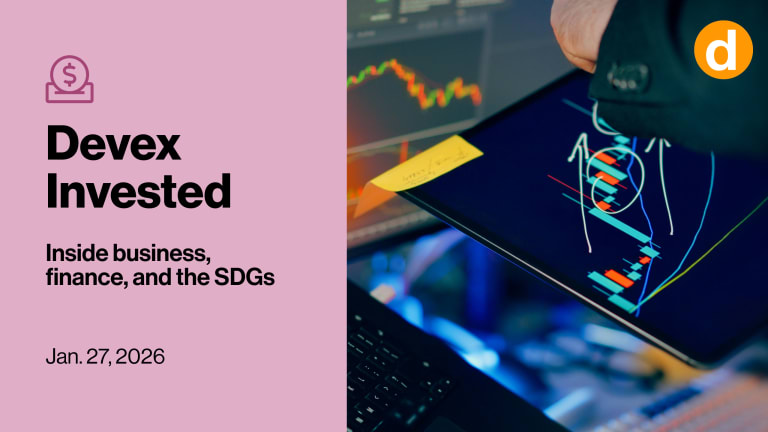Achieving the Sustainable Development Goals will require innovation, partnerships, better data and importantly — money.
Development and finance experts estimate it will cost trillions of dollars to achieve the SDGs by 2030 and that mobilizing those funds will require getting more than just traditional aid donors on board.
To help address the looming funding challenge that the SDGs present, the World Bank is offering a free massive open online course on financing for development that will teach participants where funding for the SDGs is available and how it can be mobilized.
Printing articles to share with others is a breach of our terms and conditions and copyright policy. Please use the sharing options on the left side of the article. Devex Pro members may share up to 10 articles per month using the Pro share tool ( ).








